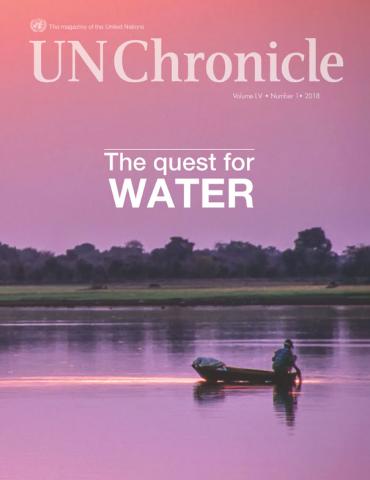
“The Quest for Water” focuses on ensuring availability and sustainable management of water for all. The articles explore important issues such as ecosystems in the global water cycle and the role of gender and social inclusion in achieving the water-related goals and targets. This issue of the digital magazine of the UN system “buoys” the launch of the International Decade for Action, “Water for Sustainable Development”, 2018-2028. ©Front cover by Bob Sherman Photography.





